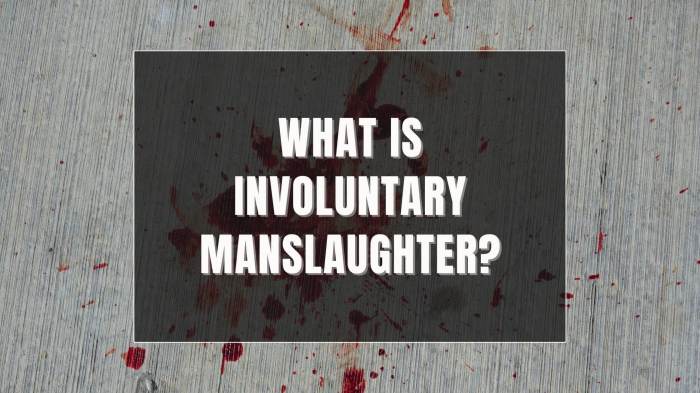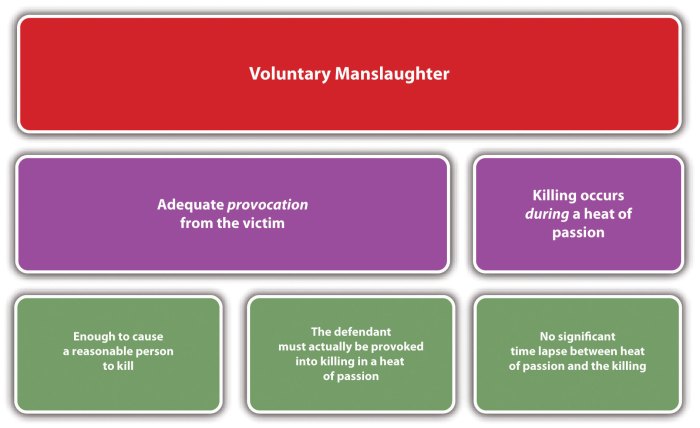What is the difference between voluntary and involuntary manslaughter – At the heart of criminal law lies the distinction between voluntary and involuntary manslaughter, two offenses that carry vastly different legal implications. This article delves into the intricacies of these two crimes, exploring their definitions, the role of intent, and the varying punishments they entail.
Voluntary manslaughter, often driven by passion or provocation, involves the intentional killing of another person. Involuntary manslaughter, on the other hand, occurs when a death results from an unintentional act or reckless behavior.
Definitions: What Is The Difference Between Voluntary And Involuntary Manslaughter

Voluntary manslaughteris an intentional killing that occurs in the heat of passion or upon sudden provocation.
Involuntary manslaughteris an unintentional killing that occurs as a result of recklessness or criminal negligence.
Intent

Voluntary manslaughterrequires the intent to kill or cause serious bodily harm.
Involuntary manslaughterdoes not require the intent to kill or cause serious bodily harm.
Punishment

The typical punishment for voluntary manslaughteris imprisonment for 5-10 years.
The typical punishment for involuntary manslaughteris imprisonment for 1-5 years.
Examples
Voluntary manslaughterscenarios:
- Killing someone in a fight
- Killing someone in a moment of passion
Involuntary manslaughterscenarios:
- Killing someone while driving under the influence of alcohol
- Killing someone while committing a misdemeanor
Questions Often Asked
What is the key difference between voluntary and involuntary manslaughter?
The primary distinction lies in the presence of intent. Voluntary manslaughter involves intentional killing, while involuntary manslaughter occurs when death results from an unintentional act or reckless behavior.
What factors determine the severity of the punishment for manslaughter?
The severity of the punishment is influenced by the degree of intent, the circumstances surrounding the killing, and the offender’s criminal history.
Can a person be convicted of voluntary manslaughter even if they did not intend to kill the victim?
Yes, voluntary manslaughter can be charged if the offender acted with “heat of passion” or “sudden provocation,” even if they did not intend to cause the victim’s death.